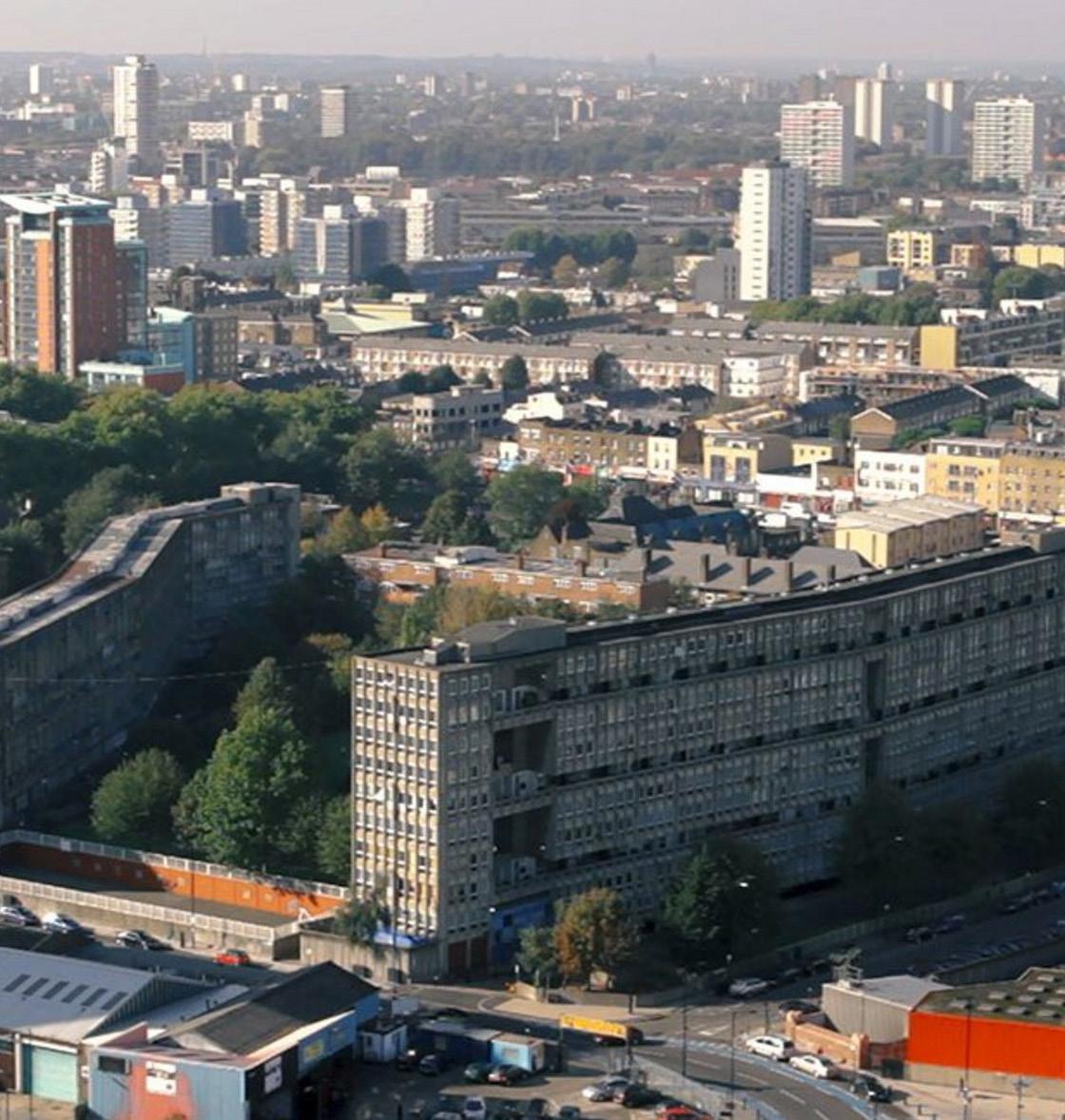
3 minute read
2022 Dissertation
from Portfolio 2023
by Pearl Samuel
Dissertation - EVER/ NEVER HOME
PROJECT Name : A spatial and psychological study of urban trauma from displacement – Case of Robinhood gardens
Advertisement
The dissertation discusses the decantation process of the residents of Robinhood gardens social housing estate in Poplar, London. The aim of this study is to analyse the spatial and psychological impacts of decantation on the tenants to help understand the need of social housing establishments from the tenant’s point of view. In order to understand the decantation process from a multi-scalar point TUTORS: Dr. Ian Wyn Owen
of view, Paul Watt’s method in Displacement and estate demolition (Watt,2019) has been used to examine the domestic and intermediate scales. These methods are used to investigate the results from a questionnaire of 13 ex-residents. The dissertation concludes with a discussion of the results, which suggest that decantation affects the tenants from an intermediate context and not a domestic.
INTRODUCTION
The dissertation focuses on the social and psychological effect of the process of decantation in the case of Robinhood gardens. The complete dissertation is approximately 10,000 words.
The housing sector in the UK has been facing a decline of affordable homes since the late 1980s, due to the privatisation of existing social homes and reduction of new affordable homes (Collins, 2019). Despite the urgent need for affordable social housing, we are seeing new programmes in and around the east of London for high-cost private flats and the conversion/demolition of social housing. Slowly but steadily, the character of these poor urban areas is then converted into wealthier settlements. This process is called gentrification (Arrigoitia,2018) The new developments in the area consider the migration of a wealthier population into the neighbourhood, instead of the existing tenants of these areas. The tenants from these social homes are then forced to move out and find shelter at a place they are given or the ones they find themselves, as they cannot afford to live in the neighbourhood, they once considered theirs (Ferriri, 2020). The process of temporarily shifting people from one home to the other is called decantation (Ferriri, 2020). The prime example for this process to have taken place in recent years is the Robin Hood gardens in Poplar, Tower hamlets. As part of the Blackwall regeneration program, Robinhood Gardens has been partially demolished in 2018 and is soon to be fully demolished. This process is not subject to Robinhood Gardens specifically but has been part of many regeneration programs such as the Blackwall Reach regeneration programme, meaning there are more decanters left without their home. This dissertation investigates the effects of this process on both the people and their surroundings. The sudden change of environment and the feeling of loss can create a huge sense of trauma within one’s mind (Watt,2019). The spatial and psychological aspects of decantation and displacement are analysed in this dissertation. The link between the different effects of decantation and displacement will be analysed from a neighborhood scale along with the human scale.
The new neighborhood of Robinhood Gardens, which would rest on the graves of the social home, would be designed, and executed to meet the needs of the expected clients from a wealthier stratum of society. While the new Black wall regeneration housing project is to reshape the neighborhoods focus on the people, and while researchers develop reasons (Darke,1979) for what has gone wrong in the design and execution of the Robinhood Gardens, this research is focused on the tenants of this previous social housing and the impact of a process that takes a toll on the individuals. There are three main areas that will be analysed during this study.


